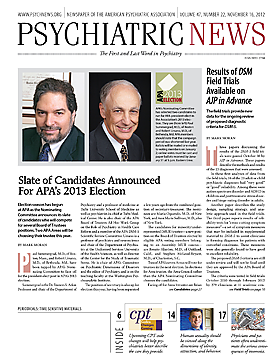It looks as if the power of the placebo can also extend to medications’ side effects.
So reported Australian researchers online September 19 in the Journal of Psychopharmacology. The lead researcher was Ben Colagiuri, Ph.D., a postdoctoral research fellow at the Center for Medical Psychology and Evidence-Based Decision Making at the University of Sydney. Participants in the study were 82 first-year psychology students at the University of New South Wales. They had been recruited for the study because of sleep difficulties. They were divided into three groups.
The researchers gave the first group a supposed medication for their sleep difficulties, which was actually a placebo, and also warned the group both verbally and in writing that the medication might cause a particular side effect—an increase or decrease in appetite. The second group was given a placebo for their sleep difficulties and was warned both verbally and in writing that the medication might cause four side effects— side effects cited in half the cases were an increase in appetite, restlessness, dizziness, and poor concentration; the four side effects cited in the other half of the cases were a decrease in appetite, lethargy, nausea, and headaches. The third group constituted a control group. They were told that they were acting as controls in a trial of a new treatment for sleep difficulty and received no warning about side effects.
At the end of the treatment week, subjects’ sleep performances were evaluated, and the subjects filled out a questionnaire. They were asked to rate whether or not they had experienced any side effects during the treatment period and, if so, to specify what they were. They also filled out an adverse-symptom checklist that evaluated a range of symptoms and had the target side effects embedded within it. Finally, the outcomes of the three groups were compared.
Not surprisingly, the two groups that had received a supposed medication for their sleep difficulties experienced significantly fewer such difficulties afterward than did the control group, attributable largely to the power of the placebo effect. More surprisingly, however, 41 percent of the subjects in the two groups who had been warned about experiencing one or four side effects from the supposed medication experienced at least one of the side effects they had been warned about.
The impact of warnings on appetite changes appeared to be especially strong. For example, of the 26 subjects warned about an increase in appetite, more than one-fourth reported an increase, and the rest reported no change. Of the 25 subjects who had been warned about a decrease in appetite, more than one-fourth reported such a decrease, while the rest reported no change.
The implications of another study finding, though, are less clear. The control group, which received neither a placebo nor a warning about side effects, reported a high rate of adverse effects. In fact, they tended to report more adverse effects than the two placebo groups did. A possible reason for this, the researchers speculated, is that the control group was sleeping more poorly at the end of the week than the two placebo groups were. As a result, they may have experienced adverse effects related to poor sleep.
Therefore, when a patient appears to experience adverse effects from a medication, the medication itself may not necessarily be at fault. A warning about medication side effects or a patient’s presenting condition may be the culprits instead.
The study had no outside funding.


